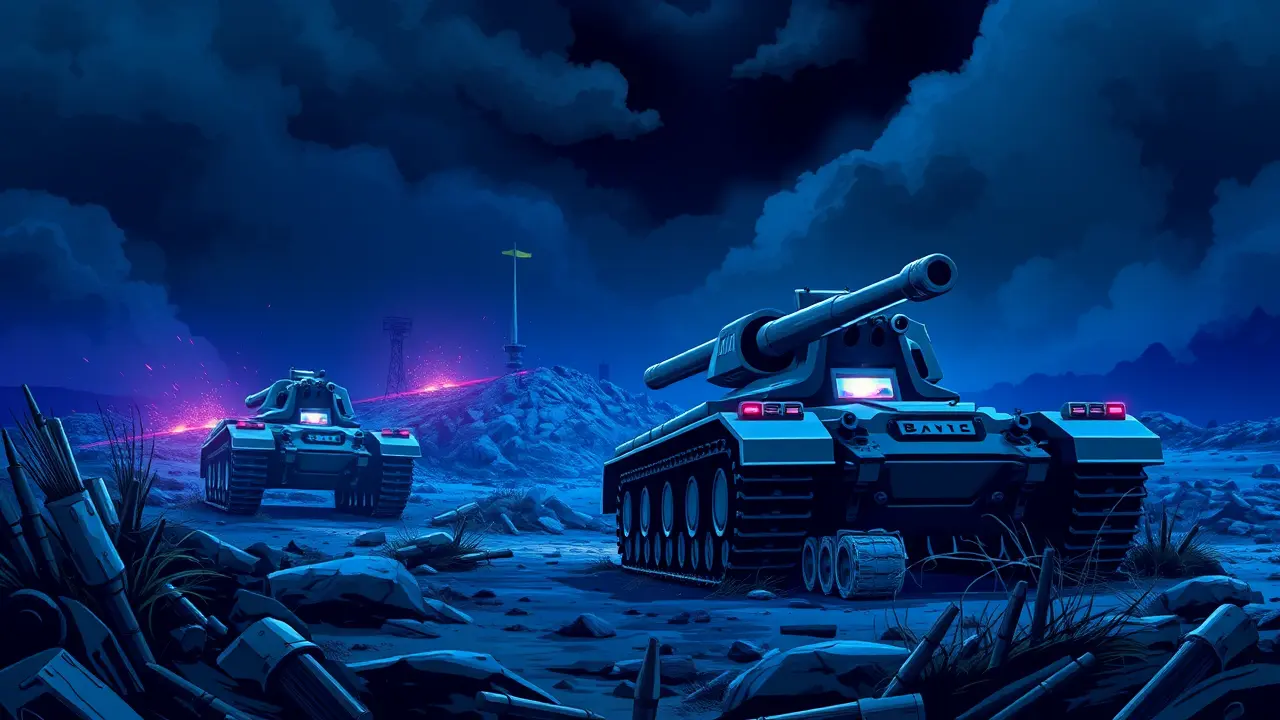
Politicsconflict & defenseMilitary Operations
NATO Pledges Long-Term Support for Ukraine Amid Stalled War
OL
Oliver Scott
12 hours ago7 min read
The geopolitical chessboard has entered a phase of grinding, high-stakes attrition, a development underscored by Admiral Giuseppe Cavo Dragone's recent assessment to the BBC that the Russia-Ukraine war is effectively bogged down and that it is 'almost time to sit and talk. ' This statement, emanating from a senior NATO military leader, is not a casual observation but a critical risk assessment that signals a pivotal inflection point in the conflict's trajectory.For risk analysts and strategic planners, this 'bogged down' characterization translates to a war of attrition where incremental territorial gains are measured in meters and paid for with staggering human and material cost, a scenario that inherently favors the side with greater long-term resources and political will—a calculation that is currently being stress-tested across Western capitals. The simultaneous NATO pledge of long-term support for Kyiv is the necessary counterbalance, a strategic commitment designed to offset this very attritional disadvantage by ensuring Ukraine's military-industrial capacity does not falter.However, this dual reality—a stalemate on the ground and a promise of indefinite support from a coalition of over 30 nations—creates a complex matrix of future scenarios. The most probable near-term scenario involves a protracted 'frozen' conflict with intermittent, high-intensity flare-ups, similar to the post-2014 status but on a massively escalated scale, locking Eastern Europe into a permanent state of heightened military alert and necessitating a fundamental re-evaluation of continental security architecture that has been dormant since the Cold War.A less likely, but high-impact, scenario involves a negotiated settlement brokered under international pressure, but the viability of any such agreement would hinge on virtually unbridgeable gaps regarding future security guarantees for Ukraine and the status of occupied territories, with the constant risk of a resurgent conflict in five to ten years if terms are perceived as unjust. The highest-risk, lowest-probability scenario remains a catastrophic miscalculation leading to a direct NATO-Russia confrontation, a black swan event that Admiral Dragone's diplomatic language is likely intended to forestall.The underlying data points are alarming: the sheer volume of artillery shells expended, the depletion of pre-war stockpiles, and the shifting of the defense industrial base to a war-footing economy in both Russia and the West are indicators of a conflict with no near-term off-ramp. The 'long-term support' pledge, therefore, is less a promise of imminent victory and more a grim acknowledgment that the West is preparing for a multi-year, perhaps multi-decade, contest of endurance, one that will test the political cohesion of the Atlantic alliance against the backdrop of potential political shifts in the United States and rising economic headwinds across Europe. The Admiral's suggestion to talk is the voice of strategic realism, recognizing that while the battlefield may be deadlocked, the diplomatic and economic theaters are where the next critical moves will be made, and the ultimate resolution will be shaped not just by the soldiers in the trenches, but by the resilience of economies, the steadfastness of political alliances, and the unpredictable calculus of global power dynamics.
#NATO
#Ukraine
#Russia
#peace talks
#military support
#featured
Stay Informed. Act Smarter.
Get weekly highlights, major headlines, and expert insights — then put your knowledge to work in our live prediction markets.
© 2025 Outpoll Service LTD. All rights reserved.